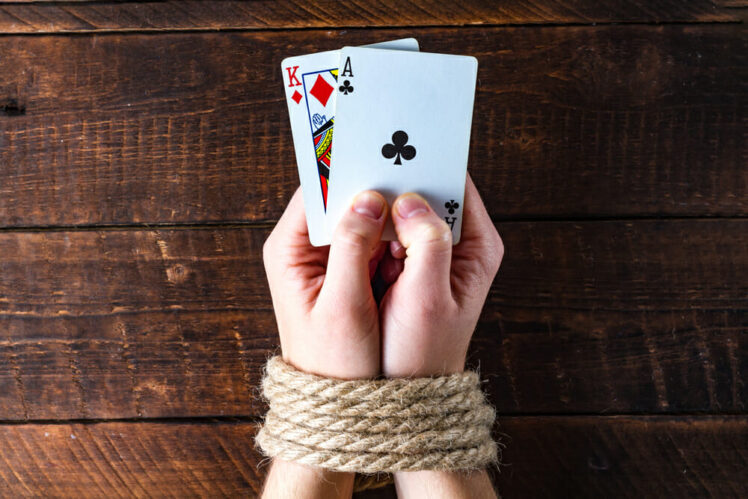If you have a problem with gambling, you should seek treatment. There are several factors that may contribute to problem gambling. This article will discuss the signs of addiction and treatment options. If you are a victim of casino problems, you should know that you are not alone. If you have been tempted to go into debt, you may be suffering from an addiction.
Contents
Treatment options for people with casino problems and addiction
There are several treatment options UK casino not on GamStop available for people with casino problems and addiction. These include behavioral therapy, cognitive behavioral therapy, and family therapy. These treatments focus on replacing unhealthy beliefs with healthier ones. Medications may also be prescribed. These medications can include antidepressants, mood stabilizers, and narcotic antagonists.
Psychotherapy is also a viable treatment option. It focuses on the way a person thinks, enables him or her to understand how gambling affects his or her life, and helps them identify their compulsive behaviors. Cognitive behavioral therapy can help a person identify the negative associations that he or she has with gambling and replace them with more positive ones.
Problem gambling is often linked to underlying mental health conditions. Medications that stabilize mood can help people recover from their addiction. Group therapy and self-help groups can also help. Behavioral therapy can help people who are addicted to gambling find a way to make changes and stay clean.
Gambling addiction is a serious issue that can ruin someone’s life and cause them great financial harm. The addiction can lead to a person losing their home, business, or even custody of their children. It can also lead to other psychological issues and problems. Therefore, it is important for those suffering from this addiction to seek treatment immediately.
Gambling addiction has many negative consequences on an individual’s social, physical, and psychological health. Moreover, it can lead to a person’s career and relationships. Those who suffer from this condition may also experience depression and despondency. It can even lead to suicidal thoughts.

Source: medium.com
Factors that contribute to problem gambling
Problem gambling is a common behavioral problem that has many consequences for the individual affected and their family. It affects the financial stability of the household and the emotional health of the gambler and their spouse. It can also lead to criminal activity including theft, embezzlement, forgery, fraud, and more. Adolescent children and college students are especially vulnerable to problem gambling behaviors. It can jeopardize their education and add additional stress to their families.
Individuals with co-occurring mental illnesses and substance use disorders are at a greater risk of developing gambling addiction. Other conditions that can increase an individual’s risk of developing a gambling problem include attention deficit hyperactivity disorder and impulse control disorders. Counseling can help individuals understand their behaviors and address them in order to prevent problem gambling.
Although there are many factors that contribute to the development of pathological gambling, the primary ones include impulsivity, heredity, and personality characteristics. Environmental stressors and social status are also significant contributors. Pathological gamblers may also have different treatment options than non-gamblers.
Gambling addiction is often triggered by financial hardship and financial distress. People may turn to gambling to escape their problems or to win large sums of money. This cycle can continue until a person seeks help for the disorder. Compulsive gambling can even lead to a person turning to theft and fraud.

Source: addictioncenter.com
Symptoms of a gambling addiction
An addiction to gambling has a wide range of symptoms, and it can have detrimental effects on a person’s life. For example, a person who is addicted to gambling may experience financial hardship, and it may even lead them to borrow money from family members. Gambling addiction can even cause a person to abandon their children.
Problem gamblers often experience erratic moods and irritability. Some will also steal items to sell in order to pay for gambling. These behaviors indicate that an individual’s addiction to gambling is a serious issue that requires immediate intervention. In addition, problem gamblers may have a difficult time keeping jobs, and they may be prone to depression.
People with gambling addictions usually increase their bets over time, and they are likely to take bigger risks as well. The cycle of winning and losing is also common in these individuals. The person may begin to withdraw from social situations, lie to family members, and even steal money to support their addiction. Fortunately, professional treatment for gambling addictions is available, and many addicts have found lasting recovery from their problem.
During treatment, an individual will undergo an assessment that will determine whether they are at risk for developing a gambling addiction. In addition, a professional will offer an appropriate treatment program. Depending on the type of addiction, treatment may include counseling and medication. An addiction treatment program can also help the person develop impulse control.
Some people with compulsive gambling also suffer from co-occurring mental disorders such as bipolar disorder and attention deficit hyperactivity disorder. Other risk factors for developing a gambling addiction include personality traits, personality disorders, and substance abuse. People with any of these risk factors should avoid gambling places, and seek treatment as soon as possible.

Source: executive-rehab-guide.co.uk
Treatment options for people with addictions
There are various forms of treatment for casino addiction. These include therapy and support groups, and working with a mental health professional to identify negative patterns and habits. Many insurance companies cover the costs of these services. However, the type and level of coverage may vary depending on your particular situation. More comprehensive insurance plans may cover a wider range of treatment options. Basic plans, however, may only cover therapy and a limited amount of other services.
Gambling addiction often co-occurs with other mental disorders, including substance abuse, depression, and general anxiety disorders. The two disorders affect the brain in similar ways, and it is therefore important to address them simultaneously. In addition, recovery plans for people with casino problems should address alcohol and drug addiction as well.
The best treatment for casino addiction may be a combination of various methods. These include counseling and behavioral therapy. These therapies aim to replace harmful beliefs with healthy ones. Some people may also benefit from family counseling and support groups. For those who have a severe problem, medications may also help. Certain mood stabilizers and antidepressants can reduce the urge to gamble.
Pathological gambling treatment has a long history and includes several approaches. The first gambling inpatient treatment program was created in a Veterans Administration hospital in Brecksville, Ohio, in 1972. The program was modeled after a program for alcoholics. Most of these programs involve peer counseling from recovering gamblers and include an educational component about the addiction. Other treatments focus on relapse prevention, identifying gambling triggers, and developing problem-solving skills.
In addition to therapy, there are also lifestyle changes and medications that can help you overcome casino addiction. While the best treatment option for your specific situation is an individualized one, it can be very helpful to have someone in your corner to support you throughout your recovery. For those who cannot afford professional help, there are many organizations and services online that offer help to help people struggling with gambling addiction.

Source: cardschat.com
Genetic differences between problem gamblers and drug addicts
Researchers have found that there are genetic differences between problem gamblers and drug addict. These differences have been linked with behavior and personality traits. In particular, gamblers show a higher probability of being problem gambler if they have a history of alcohol or drug addiction. Moreover, gamblers’ brains show structural and functional changes compared to non-gamblers.
Although these findings are based on a small group of individuals, they do support the theory that there is a genetic component to gambling addiction. However, the study did not specify the genes involved or the strength of the association. Furthermore, addictions are complex disorders and genetic predisposition is unlikely to be the only cause. A variety of environmental factors are likely to be involved. Researchers hope to learn more about the genetics of problem gambling and other addictions.
The genetic risk for gambling disorders is higher in people with a family history of drug or alcohol use. Furthermore, gambling disorders are more prevalent in indigenous and African American populations. Furthermore, males are more likely to develop problem gambling than females. People exposed to the use of substances are also at a higher risk of developing these disorders.
Conclusion
Gambling and substance addiction share many common genetic features. For instance, there is a gene called DFosB, which is overexpressed in individuals with substance addiction. This gene is involved in cognitive control, decision-making, and impulsivity. In addition, drug addicts and problem gamblers show decreased activation of the prefrontal cortex in response to cues used in gambling. In addition, both types of addiction show similar symptoms and reward patterns.
